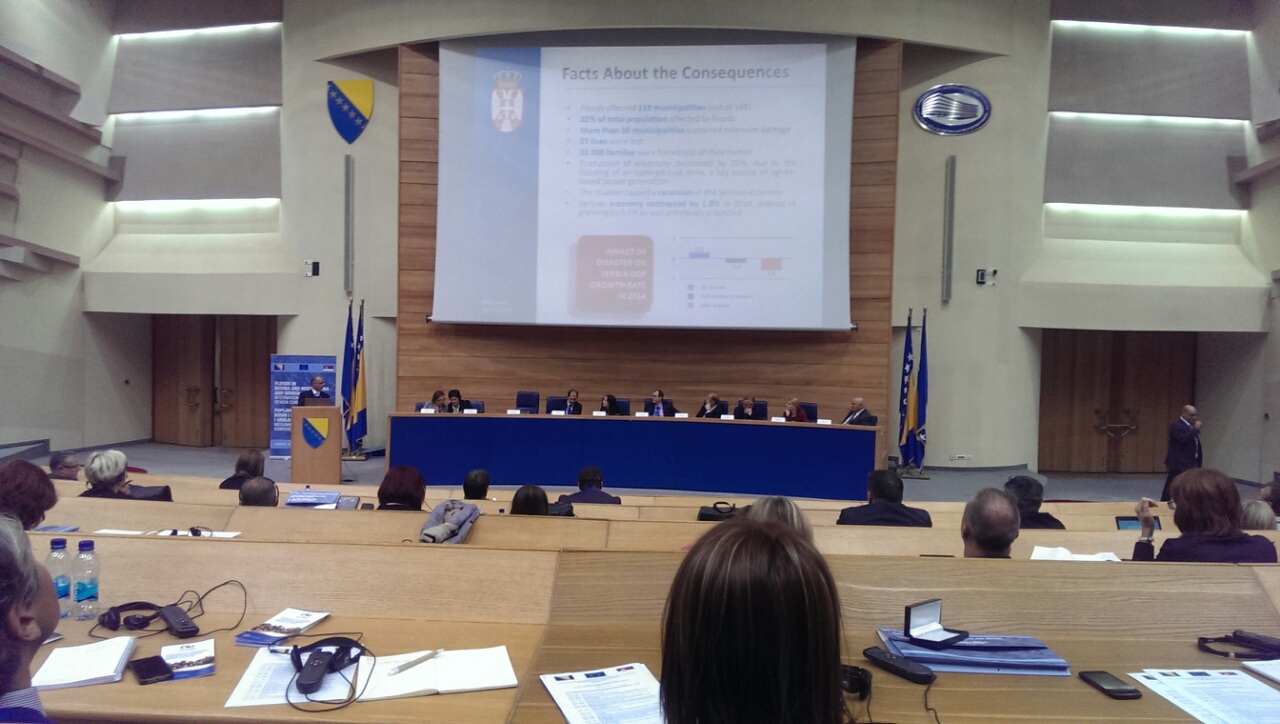search
search
Following a Donors' Conference held in Brussels a little more than a year ago, Sarajevo hosted the international conference to review the progress made on the results of the Brussels Donors' Conference addressing post-flood recovery in Bosnia and Herzegovina and Serbia. The gathering of donors saw the results achieved in reconstruction, and in the level and method of implementing the pledged donations. Furthermore, current situation in flood affected areas was also reviewed, and future priorities established.
Organization of the Brussels Donors' Conference titled "Rebuilding Together" in July 2014, where delegations of more than 60 countries and 23 international organisations, as well as the representatives of civil society and private sector pledged to support Serbia and Bosnia and Herzegovina, was a gesture of immense solidarity on the part of the international community. The assistance pledged to Serbia amounted to EUR 26.8 million in bilateral donations, EUR 90 million in the European Union funds - EUR 30 million from the IPA 2012, EUR 50 million from the IPA 2014, and EUR 10 million for cross-border projects. Financial institutions also pledged a number of credit arrangements for the reconstruction process. 
At the conference held in Sarajevo, it was stated that the Republic of Serbia and Bosnia and Herzegovina had implemented the reconstruction process to a significant degree in flood affected areas and that they had entered a later stage of reconstruction aiming to reduce the risk of future natural hazards. Both countries have demonstrated a high level in the implementation of the conclusions of the last year Donors' Conference, and also a high level in donor fund engagement.
Serbia has managed to raise the pledged sum of EUR 26.8 in bilateral donations to EUR 28.4 million (105.8% implementation percentage). Furthermore, the EU pledged funds of EUR 90 million have been raised to EUR 162.2 million (EUR 30 million from the IPA 2012, EUR 62 million from the IPA 2014, EUR 10 million for cross-border cooperation, EUR 60.2 million from the Solidarity Fund).
For the reconstruction process, the Republic of Serbia has also drawn a loan in the amount of EUR 227 million from the World Bank (World Bank Floods Emergency and Recovery Project).
Presenting performance results, the Director of the Office for Reconstruction and Flood Relief Marko Blagojević stressed that prevention and measures to reduce the risks were the priority for future action and that both countries could expect further support of their international partners in this aspect.
He also underscored that, notwithstanding the results achieved, it was still essential to complete the process of reconstructing the infrastructure, stressing that further improvement of the system of flood control and flood risk management was of special importance. This was precisely one of the conclusions of the conference.
The necessity to further strengthen efficient regional cooperation, since rivers have no borders and Bosnia and Herzegovina and Serbia belong to the same river basins, was especially highlighted at the gathering. In order to fight future floods efficiently, the two countries will work to develop better coordination, especially in the area of notification and early warning, and structural and non-structural projects aimed at risk management and reduction. They will also continue their work to further improve the standard of river infrastructure maintenance, in line with the activities undertaken within the Sava and Danube Commissions.
At the Conference, in accordance with the above goals, the Republic of Serbia put forward the proposal to establish a Regional Risk Management Coordination Centre.
The afternoon part of the conference saw the presentation of the Western Balkan countries' needs analysis for efficient transposition of the EU Directives on floods, underscoring once again the importance of regional cooperation and coordination, especially the effort to implement preventive measures in order to reduce the risks of adverse flood effects.